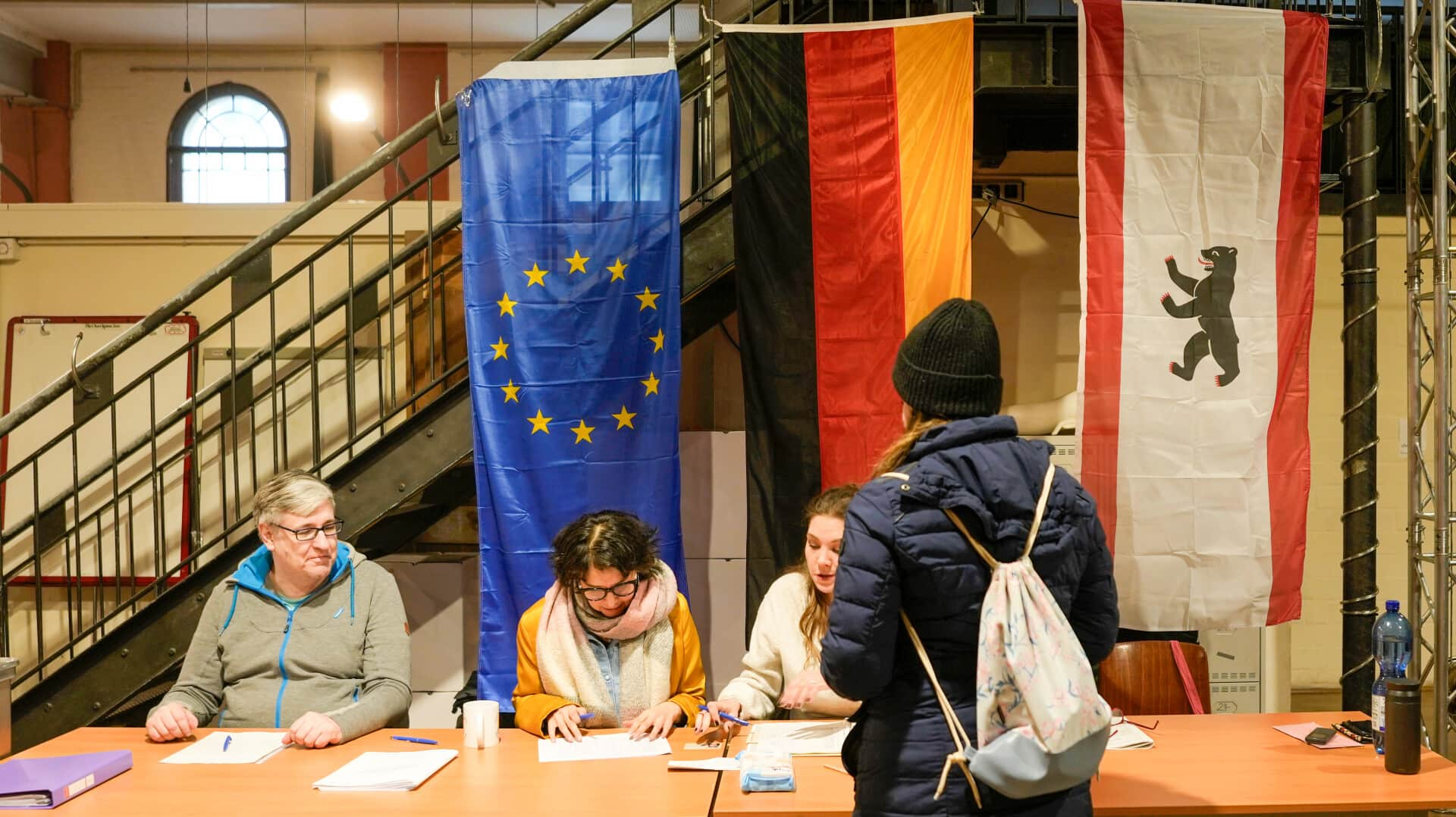'Germans tired of no common sense agenda': Trump congratulates conservatives
What's the story
Friedrich Merz's CDU/CSU conservative alliance won the general election with 28.6% of the vote, according to preliminary data released by Germany's federal electoral commission.
The far-right Alternative for Germany (AfD) won 20.8% of the vote, the party's best federal showing to date, while Chancellor Olaf Scholz's center-left Social Democratic Party (SPD) won just 16.4% of the vote.
On Sunday, US President Donald Trump celebrated Merz's victory in the national election, which ousted incumbent Chancellor Scholz.
Post
Great day for Germany: Trump
"Much like the USA, the people of Germany got tired of the no common sense agenda, especially on energy and immigration, that has prevailed for so many years. This is a great day for Germany," Trump wrote on Truth Social.
"This is a great day for Germany, and for the United States of America under the leadership of a gentleman named Donald J. Trump. Congratulations to all—many more victories to follow!!!"
Policy stance
Merz's vision for Europe and criticism of US
After his opposition conservatives won, Merz said that Europe must attempt to "achieve independence" from the United States.
He said that it would be his "absolute priority" to strengthen Europe so it does not have to rely on the US for defense.
"I never thought I would....say something like that on a TV program, but after Donald Trump's latest comments in the last week, it is clear that the Americans...care very little about the fate of Europe," he said.
Coalition challenges
AfD's rise and mainstream parties' refusal to collaborate
Merz also criticized tech billionaire Elon Musk for interfering in the election campaign to boost the AfD, which achieved its best-ever national poll result.
"The interventions from Washington were no less dramatic and impertinent than the interventions we have seen from Moscow, so we are under massive pressure from two sides," Merz explained.
Political upheaval
Germany's political crisis and SPD's decline
With the CDU-CSU alliance falling more than 100 seats short of a parliamentary majority, the group will be forced to form a government with the support of the SDP and potentially the Greens.
"If we have one partner, it will be easier; if we need two partners, it will be harder, but even in that case, it will have to be successful," Merz said.
Germany's political crisis was set off when Scholz's coalition fell apart on November 6.
